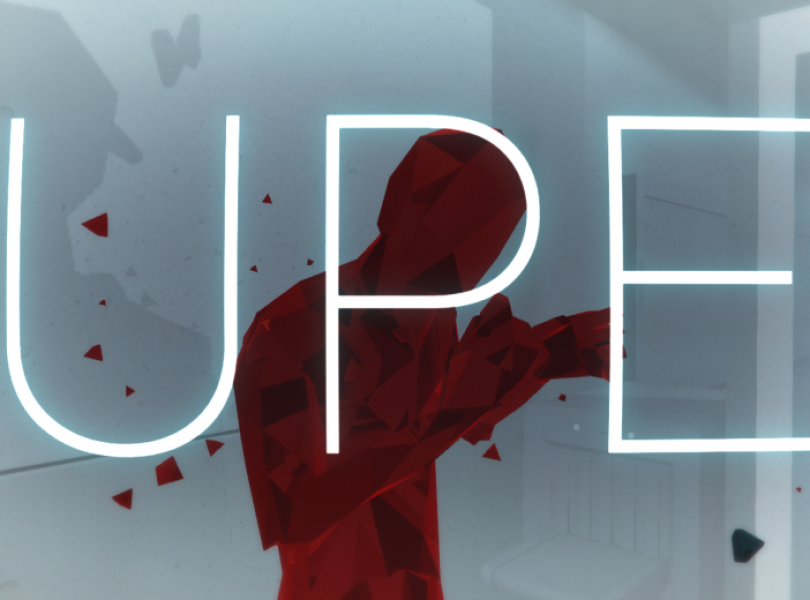There is a conundrum deep in my heart as to my thoughts on Superhot. Every punch, shot and throw is a joy, all culminating into a dance of death that will have you sitting back and thinking “I am badass” before the game sucks you in with another level to show off how violent you can be in a pinch. But this sweetness is soured somewhat by a story so ball-achingly stupid that it made me wonder if the fun I could be having in a moment is worth slogging through all this nonsense.
For those who don’t know the basic premise of Superhot, it’s very simple; time moves when you do. Every step, turn of the head or shot fired progresses the world a few seconds and what’s happening in this world is people are trying to kill you. Dropped into a series of ever more difficult levels you must dispatch a series of assailants in whatever manner you see fit. Weapons are often sparse to begin with, forcing the you to improvise. Chuck a bottle at a foe with a gun to knock it out their hand, then catch it mid-flight before turning it on it’s former owner.

Quickly you find yourself sliding into a pleasant rhythm with every new level. A personal favourite tactic of mine is to fire a single shot at an assailant, then while the gun is gearing up for a second shot, turn and hurl the weapon towards another attacker, either knocking the weapon from their own hands or acting as a shield to any oncoming fire. As you begin to realise what the games time mechanics give you in terms of tactical choices you’ll begin to wish you had them in every other first person shooter.
The many environments you massacre your way through are simply designed facsimiles of generic real world places. Offices, train stations, museums, the staging ground to a hundred fights across video games and film. When killed, your foes don’t burst into fountains of blood but shatter like glass, their fragments dancing across the floor till they dissipate. This is violence in the world of a JG Ballard book, every frame of it there to be viewed in clinical detail but no humanity of which to connect to.
I’ll be honest now and say I couldn’t stand the story that Superhot was trying to tell across the two or three hours that made up the game’s campaign. I’ll try to keep what I say here spoiler free but will say the game touches on ideas of player agency and a game’s ability to make the player do things that are superficially dull in order to progress to the next bit of juicy murder. These ideas are nothing new in games, but where Superhot stretches itself is making much of the last act of the game all about this, draining the game of any energy as it stretches itself to make some grand points – which it never really does.
If I had to sum up Superhot in one word it would be: Smug. Superhot knows it’s a good game, that it’s innovative, that you’ll have fun playing it and so it goes about testing the player’s patience with forced philosophical guff about player agency, just to see how much the player is willing to take in order to keep playing. These ideas and themes have been explored before by much smarter games, leaving Superhot’s contribution to that conversation pretty sophomoric at best. What it doesn’t bring to the table in philosophy it more than makes up for in good old-fashioned fun.


